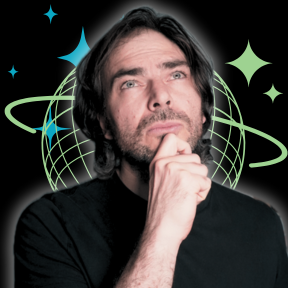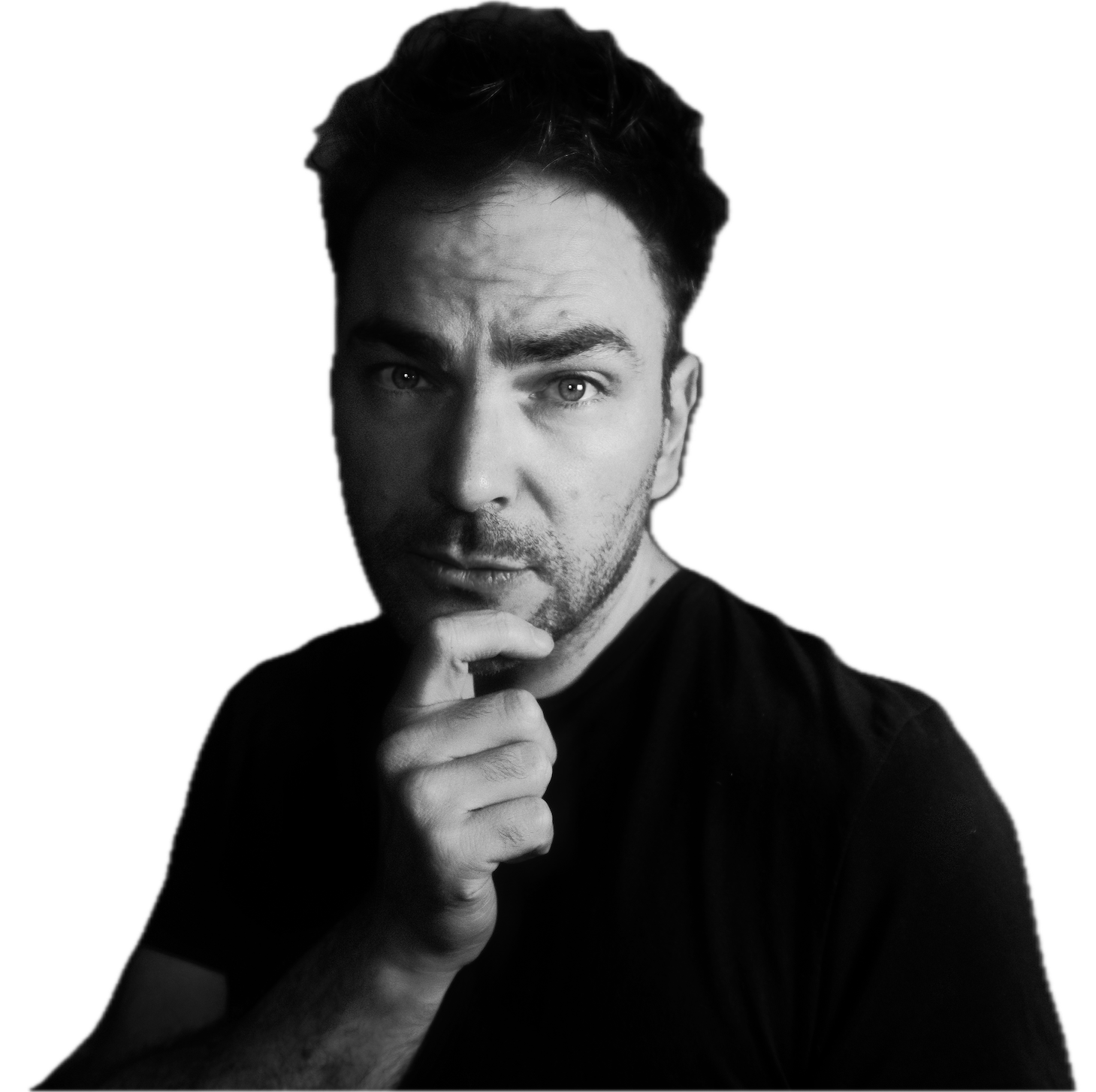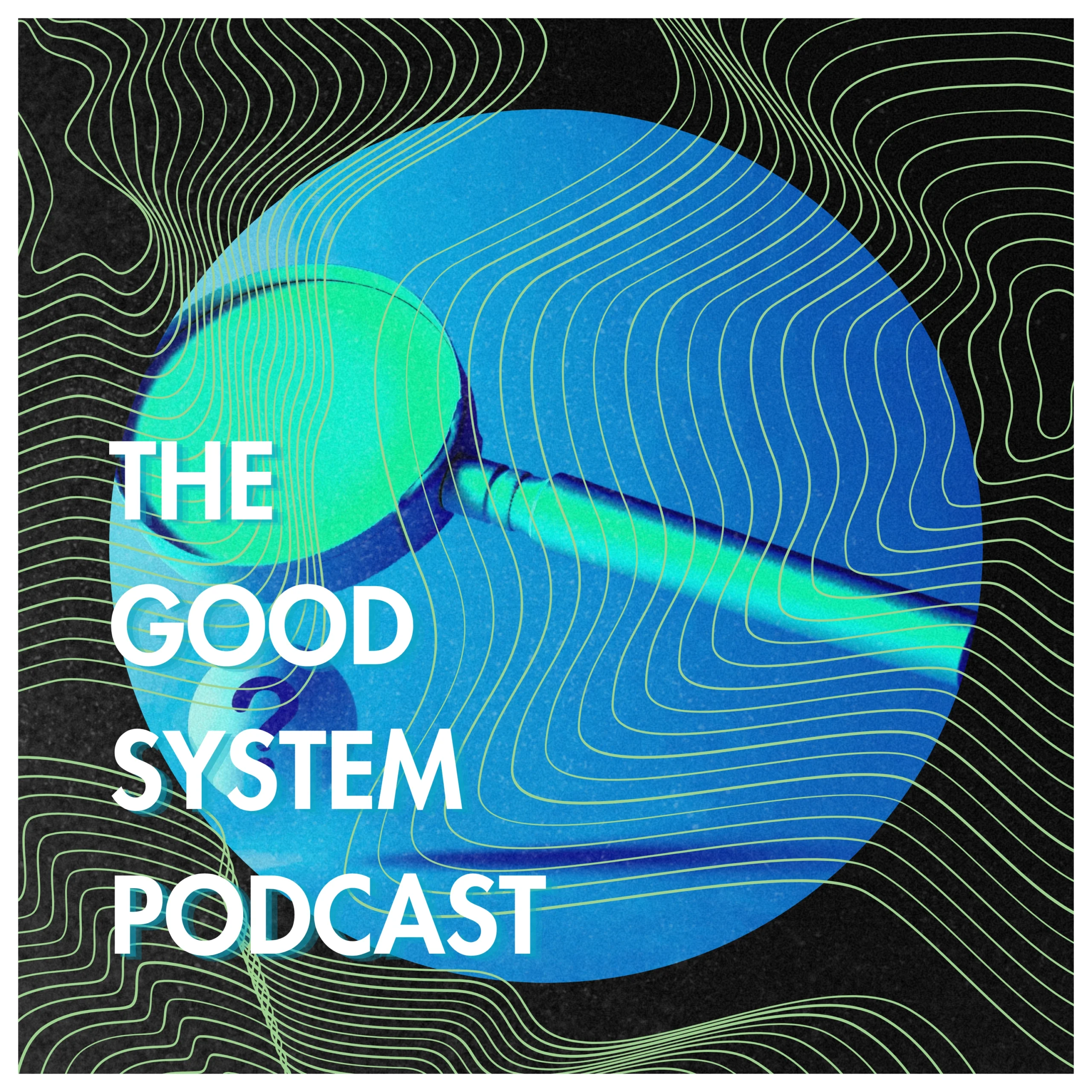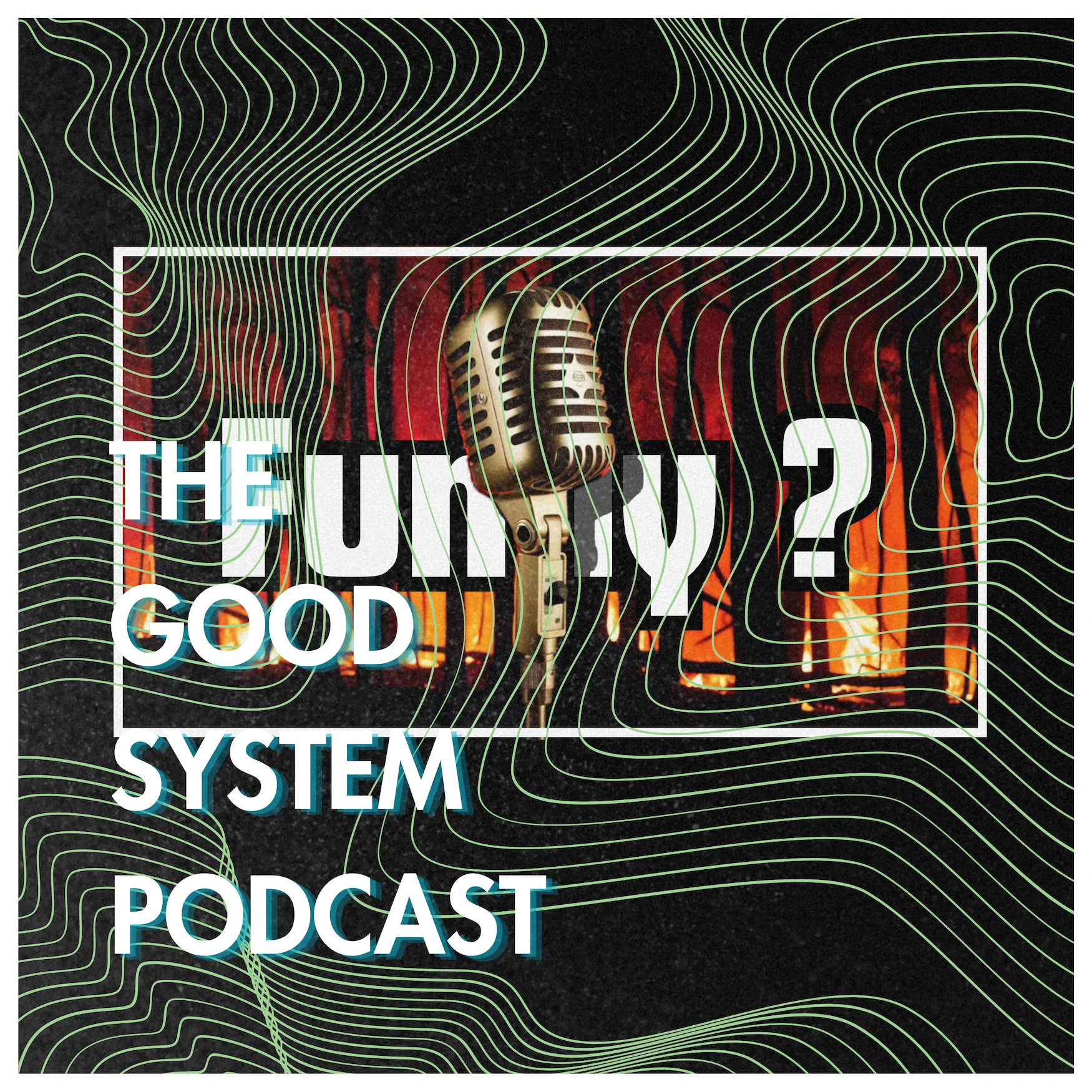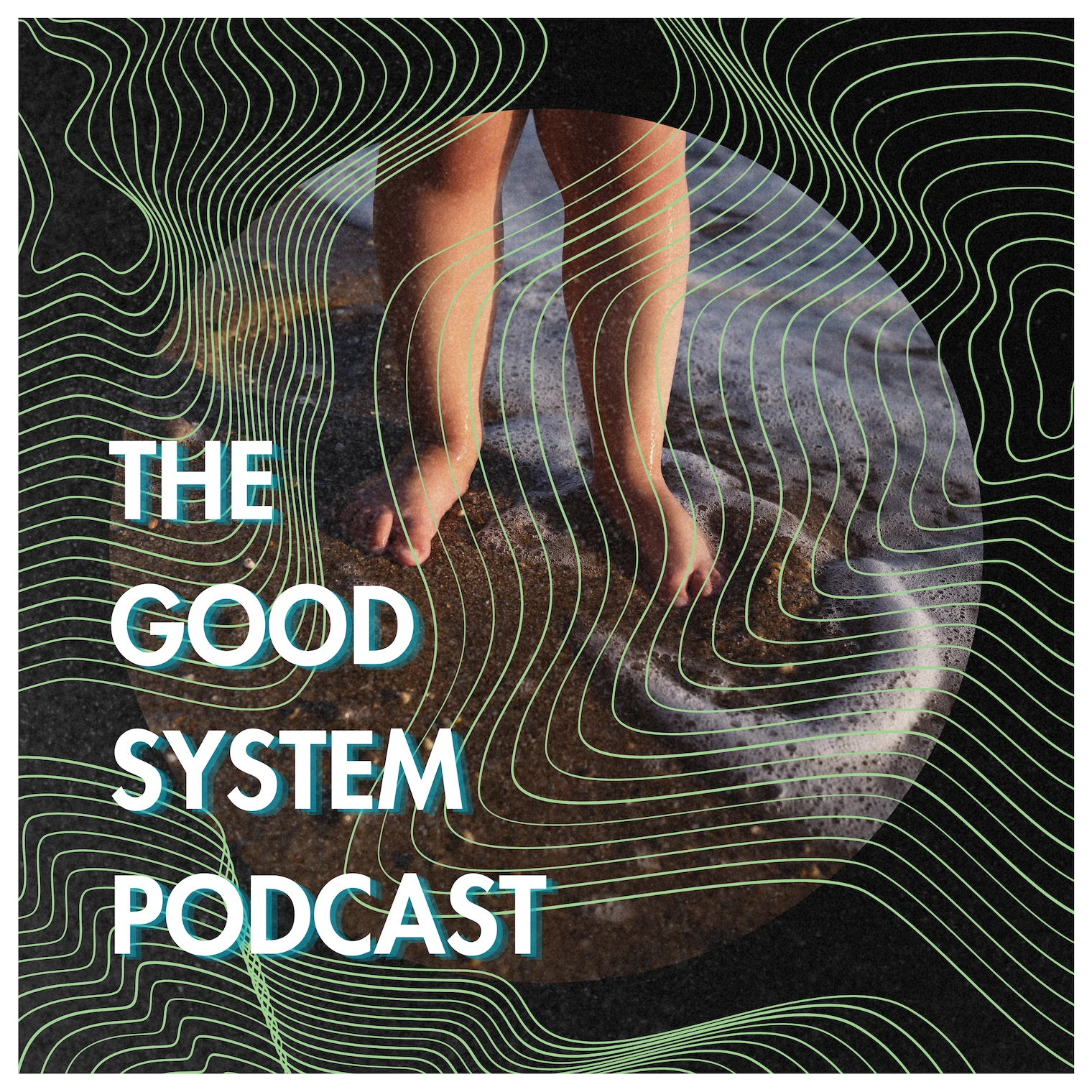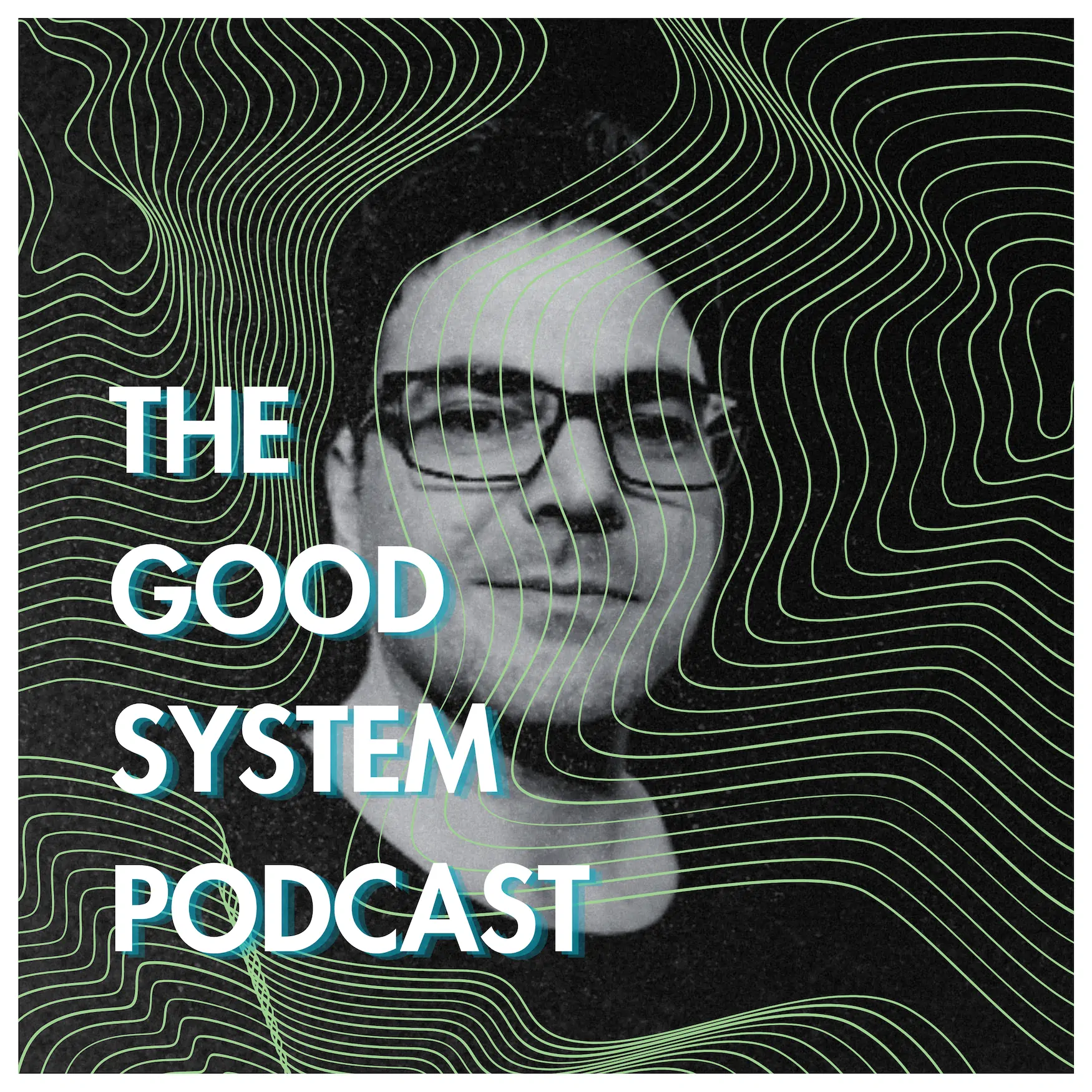Episode Transcript
[00:00:00] You hear this podcast because you are human and you have at least one good friend. Or a very bad one. You'll find out in this podcast episode.
[00:00:14] Hello and welcome. This is the Good System, the podcast where we build the vision of a good future.
[00:00:22] I am Ian the Bay. I'm content creator, system thinker and optimization victim. You know what's hilarious?
[00:00:31] I just spent three hours researching the perfect keyword density for this podcast script.
[00:00:38] Three hours.
[00:00:41] Because apparently if I don't mention Sustainable Lifestyle Podcast for millennials exactly 2.3 times per minute, the algorithm gods will banish me to digital purgatory alongside MySpace and wine.
[00:00:59] Are you even nerdy and old enough to remember this? Tell me and write me an email.
[00:01:05] Or go to the socials to my socials and write me a dm. You find all of that in the show notes.
[00:01:15] But here's the kicker. I'm not publishing this as a blog post. It's a freaking podcast.
[00:01:26] Yet here I am, still thinking like a machine instead of a human. And that, my friend, is exactly what we need to talk about today.
[00:01:36] We're diving into something that affects every single one of us who's ever Googled anything. Which, let's be honest, is everyone. Except maybe that one guy, and that's certainly not me, who still asks Siri everything and wonders why she never understands his Austrian accent.
[00:02:00] We are talking about how the Internet became a giant vending machine designed by robots for robots and leaving us humans as the coins they collect. But more importantly, and here's where it gets interesting, we're going to explore how this whole mess might actually be settling us up for something beautiful, something more human than we've had in decades.
[00:02:26] I will talk about SEO and AI today. But don't worry, I won't get too technical.
[00:02:34] I'm no tech podcaster or blogger, although this would be a much more profitable niche since it's predestined for SEO. This is predestined. Predestined. Predestined. Predestined. You know, hopefully what I want to say, but a short definition about what SEO is, for all those who don't know, it, stands for Search Engine Optimization.
[00:03:05] That means that mostly texts like blogs, but also podcast show notes or YouTube video descriptions, or anything really that is text based and online is written in a way Google likes it.
[00:03:21] Yes, Google. Although it's called Search Engine Optimization, it's all about google. With over 90% of market share.
[00:03:34] So that means a certain keyword people search for is baked everywhere into the text, into the headline, the Sub headlines, the URL, the excerpt of the text, the text itself, image description and image caption.
[00:03:53] So at best, your website ranks at number one on the Google search. Because if you are not number one, you do not exist.
[00:04:03] If everyone does that, you get a lot of articles that that are practically the same.
[00:04:10] There are other metrics that Google takes into account, but I guess you get the gist. As I said, I'm not a techie, I'm a thinky. I will also mention AI, artificial intelligence and how it influences the content that gets produced. What I will not talk about is how AI will destroy many jobs and our society isn't prepared for that.
[00:04:38] If you're interested in this topic, let me know.
[00:04:43] Now. Let me paint you a picture.
[00:04:46] It's 2025. You're scrolling through your feed and every blog post looks like it was written by the same person.
[00:04:56] 7 Ways to Optimize your morning routine for maximum productivity.
[00:05:02] The ultimate guide to sustainable living in 2024.
[00:05:07] How to hack your brain for better focus.
[00:05:10] Number four will shock you.
[00:05:14] Sound familiar? Of course it does, because these aren't really written by different people anymore.
[00:05:23] They're written by the same invisible editor, the Google algorithm.
[00:05:29] And we've all become its unpaid interns, frantically trying to guess what it wants to hear.
[00:05:37] Here's what's bonkers about We've created a system where human creativity gets filtered through a machine's idea of what other humans want to read.
[00:05:48] It's like asking a calculator to write poetry and then wondering why all the words are hello and boobs.
[00:05:58] But wait, it gets worse.
[00:06:01] Because now we have AI writing content specifically designed to fool other AI systems.
[00:06:09] It's machines writing for machines while we humans sit in the audience watching the most boring tennis match ever.
[00:06:19] I'm part of this too.
[00:06:21] I have to play the game while not tennis. I'm not that fancy, but no, I mean the game of optimization. To get noticed, to get reach, to make money.
[00:06:34] I'm not good at this either, because I don't get noticed and don't get reach and don't earn any money yet. I try a new approach with this podcast episode, but more on this later.
[00:06:49] And this episode is neither a rant a about how bad this system is. Well, it kind of is, but not because I suck in it and blame the system.
[00:06:59] I blame it on a matter level.
[00:07:01] The Internet isn't for humans anymore. It only exists for the machines.
[00:07:07] The irony is delicious, isn't it? We built the Internet to connect humans, and we've accidentally created the world's most sophisticated echo chamber for algorithms.
[00:07:19] Now, before you think I'm just another guy yelling at clouds, let me be clear. I get why this happened. We've got billions of pieces of content floating around cyberspace. Someone has to organize this chaos right.
[00:07:34] Enter Google.
[00:07:36] They promised to save us from the information overload, and so we. And furthermore, the investors said shut up and take our data.
[00:07:46] But here's where the plot thickens. Google doesn't actually care about finding the best content. It cares about finding the most optimized content.
[00:07:58] It's like having a librarian who organizes books not by quality or relevance, but by how shiny their covers are.
[00:08:08] And we fell for it. It was good enough and it was convenient.
[00:08:13] The result?
[00:08:14] An Internet full of perfectly optimized mediocrity content that's just good enough to rank, just engaging enough to click, just informative enough to satisfy the algorithm's hunger for user engagement metrics. While this approach may work for informational pieces, although you get a lot of crap, it doesn't work for creative work. You can't find great texts, videos, music, or any other art piece by googling it.
[00:08:49] Finding good content is the same as it ever was, either word by mouth or because some critics, experts you trust are writing or talking about it.
[00:09:03] The best podcasts I listen to were all suggested to me by humans.
[00:09:10] The TV shows and films I watch. I do this because I read or heard about them from others.
[00:09:18] The music I hear is mostly children songs and epithel by Bruno Mars, but that's a different story. And also human related, but small human related.
[00:09:29] And there's news. I personally get my news from traditional media because they earned my trust.
[00:09:37] Searching for news online doesn't offer you trustworthy media, but the one that plays the search engine game, either good SEO or good money.
[00:09:51] We need people we trust to find great content.
[00:09:55] More on that later. But if you have good content, please tell me about it now. Think about the real world for a second.
[00:10:08] Most books are mediocre. Most movies are forgettable. Most music is. Well, let's just say there's a reason Spotify has a skip button. But the great stuff, the stuff that changes how we see the world, that's rare, precious, and usually found through word of mouth, not through algorithmic recommendation. The Internet promised us access to everything, but instead gave us easy access to everything. That's just okay.
[00:10:41] But right now, we may be experiencing a turn in the development of the Internet. Or should I say turn to table undiscovered in the shadows of the AI Hype. A step into the past is our way in an exciting future.
[00:11:01] Remember vinyl records?
[00:11:03] Yeah, now you get my great turntable joke from before, aren't you? And it makes the joke so much better that I'm talking about it and explain it for hours.
[00:11:16] So in 2001, everyone said vinyl records were dead. Why would anyone want these big fragile discs when you could have perfect digital music?
[00:11:28] When you can tell your digital assistant to play some music without thinking what you want to hear?
[00:11:35] And yet here we are in 2025 and vinyl sales are hitting records not seen since the 1980s. And why?
[00:11:46] Because people crave for something real, something made by humans, for humans.
[00:11:53] I think we are about to see the same thing happen with content.
[00:11:59] Call it the great human renaissance of the Internet.
[00:12:04] While everyone else is busy feeding content into the SEO machine, a quiet revolution is brewing. So small websites, personal newsletters, intimate podcasts, spaces where real humans share real thoughts without worrying about keyword density or bounce rates.
[00:12:24] Not everything about SEO and AI is bad. It can give text structure that would otherwise end in bubble, meandering from one digression to another and not getting to the point, like this podcast here.
[00:12:42] And I must say, I really today profit from SEO.
[00:12:47] Because now I have made this podcast audio only with SEO in mind, with optimization in mind, with optimization for the audience.
[00:13:01] Now I have a separate YouTube channel where I make videos just for the YouTube audience. And this podcast is audio only for the podcast audience, like you.
[00:13:12] And so I can now sit here in the dark, sweaty, because it was a very hot day today and it's late in the evening, and I can just sit here and talk to you without worrying about looking great or good were acceptable.
[00:13:33] And this is good.
[00:13:35] I wouldn't be able to record this podcast if I hadn't optimized it for audio and did the other things with the YouTube channels. And you now have experienced live meandering and not getting to the point although it is optimized. It isn't optimized. It's a Schrodinger's podcast episode. But let's get back to the script.
[00:14:06] Yes, I think meandering and not getting to the point is what people want sometimes, isn't it? Tell me, was it better now? The last few minutes were talked just what I wanted to say. Or is it better if it is optimized and streamlined?
[00:14:27] That is how it is when people talk. When you sit in the cafe with a friend, you don't talk in a listicle where every second paragraph has the right keyword in it otherwise. I hate when food blogs tell their whole life stories before they get to the recipes. But again, that's something different.
[00:14:48] I want some information, not torque or a content piece.
[00:14:54] But I digress. Again, I was talking about great human made content making in a renaissance.
[00:15:02] These digital speakeasies are popping up everywhere. Places where someone might write a 3,000 word essay about the philosophical implications of sourdough bread or create a podcast episode that meanders through topics like a Vienna coffeehouse conversation.
[00:15:22] Which again, is exactly what I am trying to do right now. And now here's the twist that would make M. Night Shyamalan jealous.
[00:15:32] AI might actually be the thing that saves human creativity.
[00:15:38] Stay with me on this one. As AI gets better at creating that perfectly optimized, algorithmic, friendly content, it's going to flood the Internet with so much artificial mediocracy and the generally human voices will start to sound exotic by comparison.
[00:16:00] Just imagine walking through a museum filled with thousands of AI generated paintings, all technically perfect, all optimized for maximum visual appeal.
[00:16:13] Then you turn a corner and see one painting, just one that's slightly imperfect, with brush strokes that show hesitation, passion, humanity.
[00:16:27] Which one would captivate you?
[00:16:31] Think about the YouTubers and podcasters you follow.
[00:16:34] Like me.
[00:16:36] You follow me, right?
[00:16:38] I'm sure you do. I bet you don't like their stuff because they are perfect. But most certainly you like the creators and you feel empathy for them. You are interested what they are doing.
[00:16:55] You watch and listen to them, even if one episode might not be great, but because you like them.
[00:17:03] Or for the elderly listeners, you may go to concerts of your favorite band, even if you don't like every song.
[00:17:12] Maybe they are terrible life, but you will still attend the next concert when they are in town.
[00:17:20] I truly believe that the imperfect human made content will be successful in the future.
[00:17:28] We are heading toward a world where made by humans becomes a premium level, like organic or handcrafted. And just like how we pay more for bread made by actual bakers instead of factory machines, people will seek out content created by actual humans instead of AI farms. But and this is crucial, this human renaissance can only happen if we democratize the tools and platforms. Yes, this is still the podcast about system change.
[00:18:04] And here we are changing the online system because right now a few tech giants control the pipes that information flows through.
[00:18:16] It's like having all the world's printing presses owned by three companies who decide what gets published based on what makes them the most money. The future I'm envisioning looks different. Open source AI tools that anyone can use, decentralized platforms that can't be controlled by a single company.
[00:18:38] Creator funds that support human storytellers instead of just optimized content mills, the Internet could become the real public media. Its owned by us. Everyone can participate, everyone can get involved on how it is developing and ever has access to it.
[00:19:01] Yes, maybe we have to pay a contribution like we now do for the public broadcast channels, but there will be no closed platforms, an open web you can search and serve. Imagine if instead of trying to game the algorithm, creators could focus entirely on serving the actual audience.
[00:19:22] Imagine if the weird, wonderful, deeply human content could find its beautiful people without having to dress up like a listicle first. And you can be part of this change.
[00:19:35] So here's my challenge to you and it's the same one I post on my original blog post because some ideas are worth repeating even if it hurts our SEO.
[00:19:48] And I want to test whether humans can still beat machines at connecting with other humans, not by being louder or more optimized, but by being more genuinely ourselves.
[00:20:01] Share something real today.
[00:20:04] Not something designed to go viral, but something true.
[00:20:08] If you want, send this podcast episode or anything else to someone who might actually enjoy it, not because it boosts engagement metrics, but because you think they dig the conversation. Let's find out if word of mouth can still compete with algorithmic distribution. Let's see if genuine human recommendation can cut through the noise of automated suggestions.
[00:20:39] So if you are new to this podcast, if you listen to this podcast because someone suggested it to you, that's why the person thinks you will enjoy this. Or you have enjoyed this because it is pretty late in the episode. So you are the evidence. If this challenge worked or not, let me know and I will do it myself.
[00:21:09] Not letting me know if it worked, I will send this podcast episode to someone who might like it.
[00:21:17] I normally don't do it because I don't want to mess with the algorithm. And that's totally messed up. Especially because podcasts are one of the last content formats that are not enslaved by the algorithm gods.
[00:21:33] I will never send a link to my YouTube channels to anyone, because YouTube then wouldn't know whom to suggest my videos. If you want to check, the link is in the show notes. Because here's what I really the future belongs to the humans who refuse to write like machines, even when machines make it easier. The future belongs to the creators who prioritize connection over optimization or fantasy over engagement rates. The good system we're building isn't just about better technology though. We definitely need that. It's about remembering that technology should amplify human creativity, not replace it.
[00:22:18] In our good system, algorithms serve humans, not the other way round. In our good system, the weird, wonderful, deeply personal content finds its audience without having to pretend to be something else first.
[00:22:38] In our good system, when you search for something, you don't just find the most optimized answer. You find the most human one.
[00:22:50] And maybe, just maybe, we'll look back on this era of algorithmic optimization the way we now look back on the time we built highways through city centers as a strange period when we forgot that the most powerful technology is human connection.
[00:23:14] The Internet started as a way to connect minds across the globe.
[00:23:20] Somehow along the way, we let it become a way to connect wallets to corporations.
[00:23:26] But it's not too late to steer this ship back toward humanity.
[00:23:31] Every time you choose to read something real over something optimized, every time you share content because it moved you rather than because it might get likes, every time you create something true instead of something trending, you're casting a vote for the kind of Internet you want to live in. And that, my friend, is how we build a good, good system, one human connection at a time.
[00:24:05] If you enjoyed this conversation, you can find more of my thoughts on my blog.
[00:24:11] Yes, the delightfully unoptimized one that inspired this whole episode. You can also check out my YouTube channels where I explore these ideas more optimized for the algorithm.
[00:24:24] And if I set it up already, you can subscribe to my weekly newsletter that will come with every episode of this podcast.
[00:24:37] You can find the link in the show notes.
[00:24:43] Thank you for listening to the Good System podcast.
[00:24:47] Till next time, I'm Ian the Bay.
